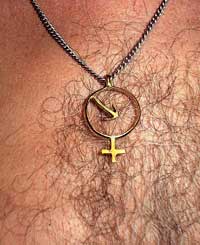 Imagine a Nepal where Chettris and Bahuns could not enter temples, where men were considered polluted for days every month, where Nepali-speakers had to learn a second language for school and government transactions and where children of Nepali fathers could be denied citizenship. Imagine a Nepal where everyone born able-bodied was hampered from participating in everyday life. Or where marriage-or even love-between men and women were illegal.
Imagine a Nepal where Chettris and Bahuns could not enter temples, where men were considered polluted for days every month, where Nepali-speakers had to learn a second language for school and government transactions and where children of Nepali fathers could be denied citizenship. Imagine a Nepal where everyone born able-bodied was hampered from participating in everyday life. Or where marriage-or even love-between men and women were illegal. Even in this, the era of civil rights, a majority of Nepalis suffer discrimination everyday only because of the station they were born in. The papers last week have been filled with stories of atrocities against the dalit castes and gender and racial discrimination abound. While most modern-minded Nepalis now will not necessarily fight for civil rights, they will-at least in principle-oppose
discrimination against women or the dalit castes, the janajatis or the differently-abled. Yet when it comes to gays and lesbians, many people still publicly balk (or giggle and blush). They will want the topic to stay hidden in the private spheres rather than come out of the closet, as it were, into the broad fight for civil rights.
Now one Achyut Prasad Kharel has stepped forward to demand that homosexuality be banned in Nepal. Every civil rights movement throws up its villains and he, apparently, is keen to be the khal-naayak this time around. In the writ he has filed against the Blue Diamond Society-the only organisation openly working for the health and well-being of sexual minorities-he has deemed homosexuality to be antisocial, anti-religious, immoral and illegal.
Kharel has apparently made it through law school. Yet his attempt to outlaw homosexuality is the moral and intellectual equivalent of trying to outlaw dark skin. Being gay or lesbian isn't an option, it's how some people are born. Some people are born with dark skin. But unless you condone apartheid, you can't legislate them as lesser citizens. Similarly, some people are born gay/lesbian (or women, dalits, janajatis or differently-abled). You can't just outlaw them because you're more historically privileged.
Unless, of course, you don't believe in equal rights. Why else would someone with all the gender, caste and educational advantages of Kharel-who I assume is militantly heterosexual-take it upon himself to disable the rights of those different than he? I would ask him to imagine, for a moment, that his marriage (if indeed anyone has married him) was illegal. Say he was barred from temples and forced to learn a second language to argue his cases (including this one) in court. Say he was considered polluted for days every month and looked down upon, inconvenienced for being of able body. All because he was a heterosexual bahun man. Would he finally put his legal skills towards defending equal rights?
But it does not take a woman to fight for women's rights, or a dalit, janajati, or differently-abled person to fight for the rights of dalits, janajatis and the differently-abled. Happily, just as we all have the capacity for rational thought, we all have the capacity for empathy. Now I myself am something of a flagrant heterosexual but I believe firmly that it should be legal for men to have sex with men and women to have sex with women, should they want to.
Why? Because in an enlightened polity, it is incumbent on the majority to safeguard the rights of minorities. Otherwise the rights enjoyed by the majority are hegemonistic and tyrannical. In this case, this means that-gasp-only when the rights of gays and lesbians are protected by law can heterosexuals like Kharel exercise his own sexual rights in good faith.


